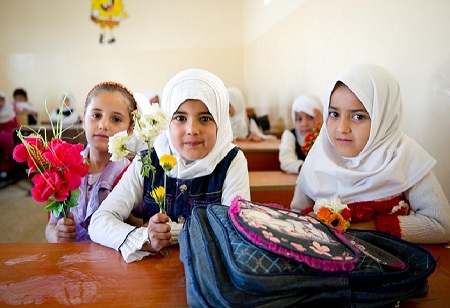Education authorities in Iraq have declared the upcoming inauguration of a new school in Baghdad, funded by China. This marks a notable effort by Beijing to enhance its influence in the Middle East, particularly in the aftermath of the United States' withdrawal. Under an agreement between China and Iraq, 1,000 schools are set to be constructed, with construction already underway on numerous sites throughout the country. The signing of 15 contracts between former Iraqi Prime Minister Mustafa Al-Kadhimi and representatives from the Power Construction Corporation of China and Sino Tech signifies a key aspect of China's expanded engagement in the region.
The ministry further stated that the provinces in Iraq are currently experiencing advanced stages of completion in the construction of school buildings since the commencement of 2024. Under the agreements, Power China and Sino Tech are set to build 679 and 321 schools, respectively, within a two-year timeframe. This initiative aligns with the Iraqi government's ongoing endeavors to reconstruct the education system, which has suffered significant challenges due to years of conflict. UNICEF reports indicate that approximately 3.2 million school-aged children in Iraq currently lack access to education. While this project represents a crucial step in addressing the pressing need for educational infrastructure in Iraq, it has raised concerns among the local population regarding potential long-term economic and geopolitical consequences.
According to UNESCO, Iraq had previously demonstrated one of the strongest educational performances in the Middle East, boasting a 100% gross enrollment rate in primary school and high literacy levels. In 1987, the illiteracy rate stood at 20%. A crucial aspect within the broader category of "Improving quality of life" is education, emphasizing that a focus on education is essential for cultivating productive citizens who can capitalize on opportunities in a market-oriented economy. The specific approach to education involves investing in human capital, with a concentration on adult literacy, vocational training, and initiatives aimed at reducing drop-out rates at the primary level.

